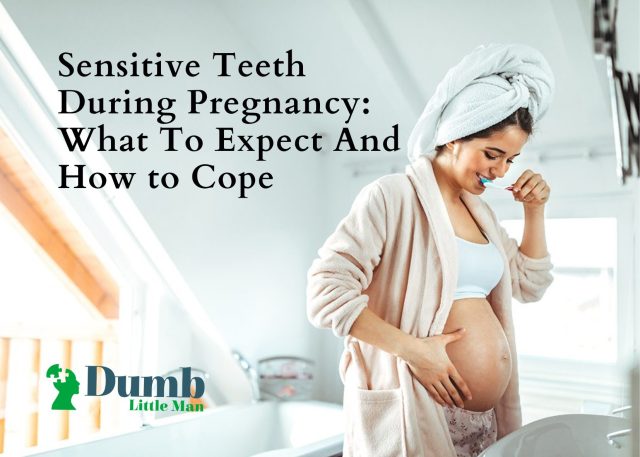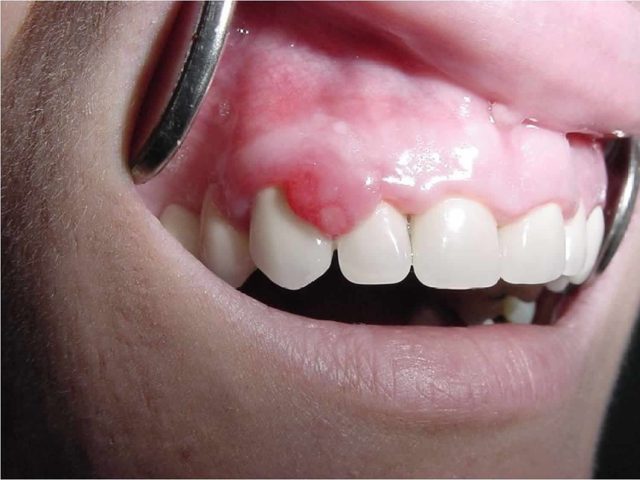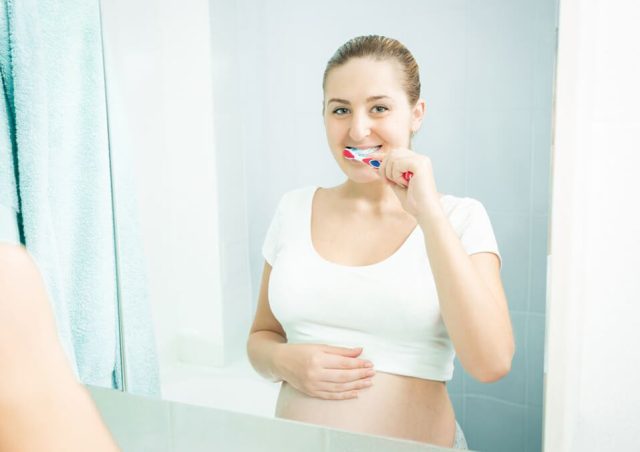Sensitive Teeth During Pregnancy: What To Expect And How to Cope
By Jessica Green
January 10, 2024 • Fact checked by Dumb Little Man

Of all the bodily changes and hormonal changes you are going through, you may not have even considered the fact that teeth can develop problems during pregnancy. This can actually be one of the more frustrating and painful aspects in the lead-up to childbirth. So what should pregnant women be expecting from their teeth? How can you cope with the pain that could be incoming?
What Do Sensitive Teeth Feel Like?
Sensitive teeth are mainly an issue when it comes to hot and cold foods. It can suddenly feel like your teeth are in unbearable pain or get a sharp sensation as soon as you consume anything hot or cold. The morning coffee you used to enjoy might suddenly become torturous.
Sensitive teeth can also be triggered by other things like brushing and flossing. This doesn’t mean to stop doing them, but you need to be gentle and be sure you don’t irritate areas that are already in pain.
What Increases Tooth Sensitivity While Pregnant?
There are a few things that can potentially cause issues during pregnancy.
Hormonal alterations in your body can change the way you respond to bacteria and infection. This means that more plaque grows and this can cause gingivitis or other issues with your teeth and gums. And, depending on the severity of your pregnant gingivitis, you may develop periodontal disease. This is a severe gum infection that damages the bones that support your teeth, resulting in tooth loss.
⫸ Pregnancy tumors
Pregnancy tumors, which are also caused by too much plaque, affect certain women. Do not panic – they are noncancerous growths on the gums, despite their frightening name.

Of course, whether cancerous or not, this overgrowth of tissues, which frequently happens during the second trimester, can cause soreness and pain, making eating and drinking hard. The good news is that these tumors normally go away after a woman gives birth.
⫸ Hormones

Hormones can also change the blood flow around the mouth and this can lead to pain in the gums. It affects up to 75% of pregnant women, so you're not alone if you have it.
⫸ Morning sickness and vomiting
Some people have speculated that morning sickness and vomiting could also cause issues with your teeth and make them more sensitive.
So you can see the link. This is not some old tall tale that people tell pregnant women or a myth passed through the ages, there are scientific reasons why your teeth can suffer, and they are just one of many body parts that experience pain when you are pregnant.

Sensitivity can be caused by plenty of other issues. For example, it can also impact your appetite, and craving for particular foods is very natural. The issue is that you are unlikely to crave healthy meals.
If you're continuously looking for sweet or high-carbohydrate meals to fulfill cravings, you risk tooth decay as well as cavities. So if you already had cavities, for instance, it could be worse.
How To Treat Sensitive Teeth During Pregnancy
How do you treat sensitive teeth? There are certain methods that you can use to ensure that your teeth have the best chance of feeling normal.
1. Brush and floss as usual.
To avoid wearing down your enamel, use a soft-bristled toothbrush and non-abrasive toothpaste. It is recommended to brush for two minutes twice a day.
2. Drink water or rinse your mouth after vomiting.
This helps in the removal of stomach acid from the teeth. But do not clean your teeth right away. This may seem strange, but after vomiting, the acidity level in your mouth increases. Brushing your teeth might cause more harm than good, so wait at least an hour after vomiting before brushing.
3. Avoid any sugary drinks and foods.
These often have a profound impact on teeth and should be treated if you’re in pain. Eating more vegetables and fruits can be good for the teeth and generally good for fighting off bacteria and infections.
4. Remove alcohol mouthwashes if you are using these.
They won’t help with sensitivity, and you can find some alternatives.
You can try specific oral products if you wish. Some kinds of toothpaste have added ingredients that can help with sensitivity. Do not buy any fad products, but check that they have been FDA approved and have proven benefits before you change your brushing routines.
Look out for signs of infection, too, such as the bad breath. These can be signs of problems and may mean you have to get seen by a dental professional.
Practicing Proper Oral Hygiene
No, tooth pain during pregnancy does not necessarily mean you have not had good oral hygiene.
That said, both before, during, and after pregnancy, the best answer to teeth problems is good hygiene.
What does this look like?
- Brushing at least twice a day with quality oral products.
- Flossing using either dental floss or a water flosser,
- Eat and drink well.
Teeth can suffer if you are not taking on enough water. On top of this, you need to make sure your body has the right kinds of fuel including getting calcium, vitamins, and minerals.
Regular visits to the dentist, and visits if anything goes wrong. Not only should you visit dentists for a regular check-up, but you should also make sure you get seen if your teeth develop extra sensitivity, or if you are experiencing pain. It is always better to be safe.
Try to avoid food and drink that can do your teeth damage.
Jessica Green
Jessica Green is a content writer with 5 years of experience, who covers topics related to oral care, hygiene, and general wellbeing. Jessica enjoys giving readers the most up-to-date and relevant information in a clear, friendly manner. She is currently living in Las Vegas, and cooperating with Stephen Spelman Dental Office as a content marketer.

